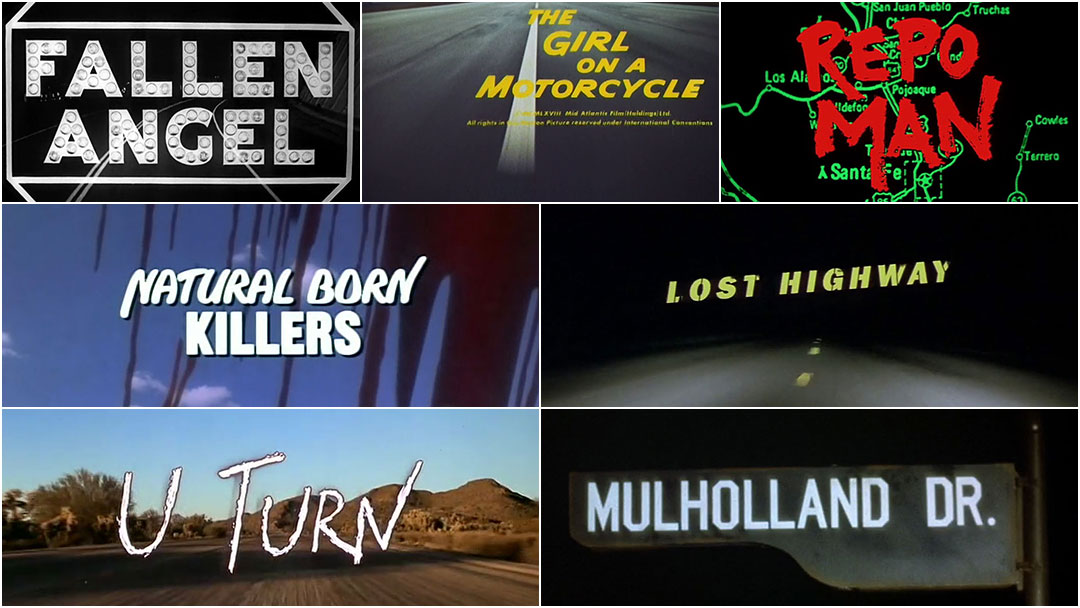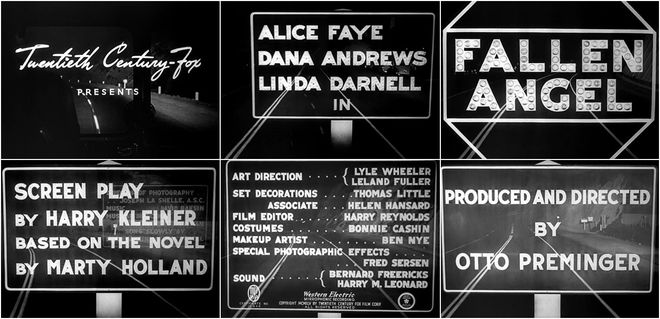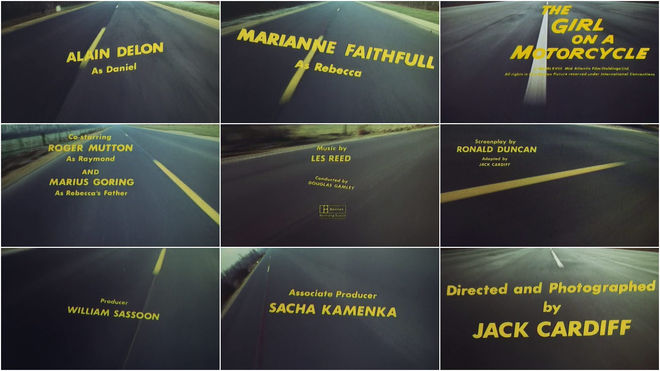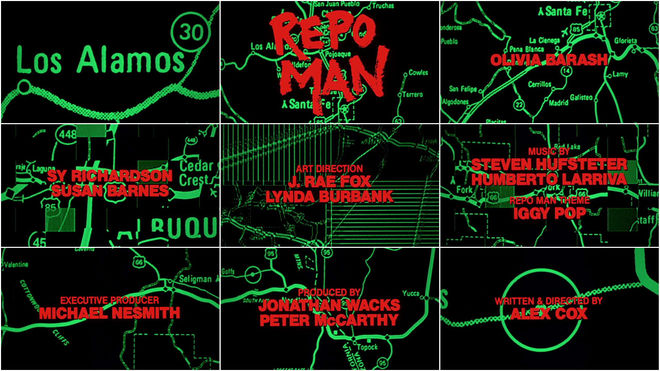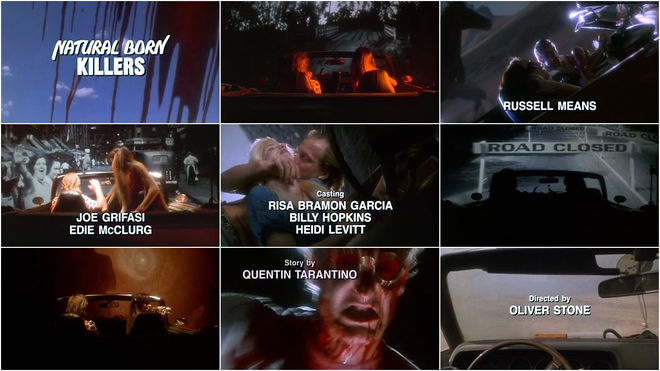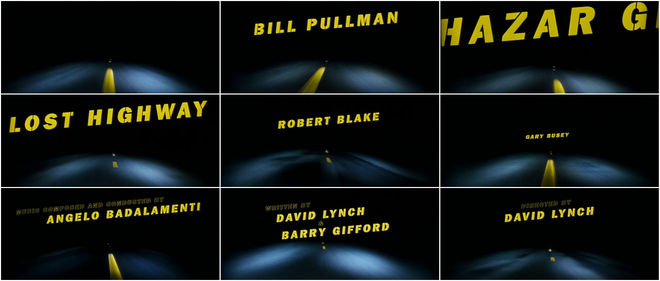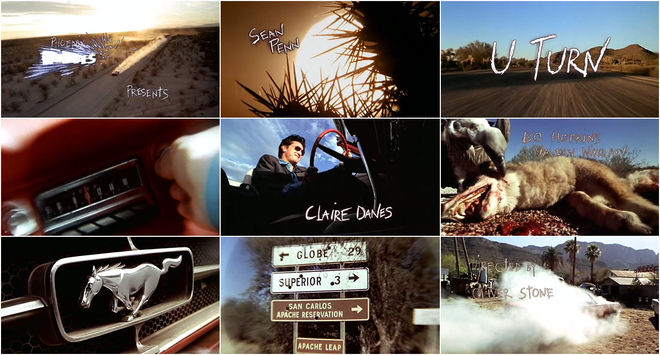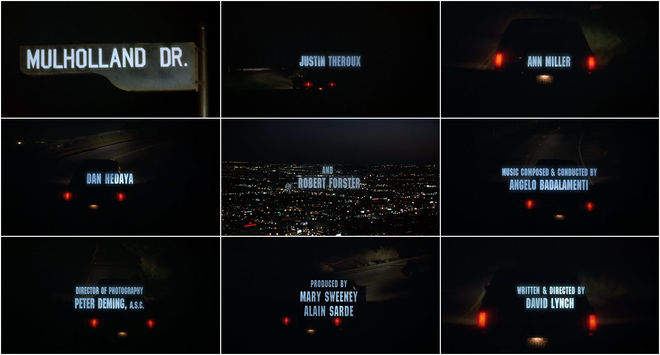Seven sequences of stirring mobility.
Between driver and destination burrows transmutation. The road spreads and the governing need is not to arrive, but to go. What better odyssey of thought then a speeding sojourn into darkness? You may burn (may you burn), you may soar (may you soar).
Fallen Angel
Road sign credits overlay the dark winding artery. The tremulous camera adds an unease heightened when the bus driver turns and stares. His was our initiatory point of view… and now his eyes are not on the road.
The Girl on a Motorcycle
Jack Cardiff’s The Girl on a Motorcycle has us zipping along the interstate in half-steady, half-cocked woozy acceleration.
Repo Man
The opening sequence to Alex Cox’s Repo Man is perfect punk pixelation – a distillation of a bitmapped nation. With Iggy Pop’s ripping fucksweat beat and the stringent static map motion, everything about the credit sequence moves, not unlike classic punk poster art. We throb into the blipping bullseye: a space that is nothing less than the beginning.
Natural Born Killers
The title sequence for Oliver Stone’s Natural Born Killers features, among other things, the madness of Patti Smith’s “Roll N Roll Nigger” and a backseat point of view that seemingly takes its cue from brash noir Gun Crazy.
Lost Highway
Plunging the dark horizontal depths of possible collision/possible arrival, David Lynch and title sequence designer Jay Johnson perhaps borrow from Jack Cardiff’s The Girl on a Motorcycle, and Monte Hellman’s Two-Lane Blacktop for the speed-dream start to Lost Highway. The variable velocity puts you ill at ease while the atmospheric thrust of David Bowie and Brian Eno’s track, “I’m Deranged,” imbues the cryptic mix.
U Turn
Art of the Title is willing to bet Oliver Stone had one hell of a shot list for the opening credit sequence that features a nicely delineated aesthetic for every episodic bend of this very long drive. The gradual matting of Sean Penn’s hair tells the story. A scratch type “crossroads crucifix” is added to the director credit. Drugs and vultures follow. Exacting inserts detail the small truths of time and place.
Mulholland Dr.
The crooked black melodrama, the kind that David Lynch traffics in exclusively and without peer, is set within the weird, sinking delirium of Angelo Badalamenti’s score. The distance between our hovering eye and the shadowy, almost woozy conveyance coddles the curiosity.

